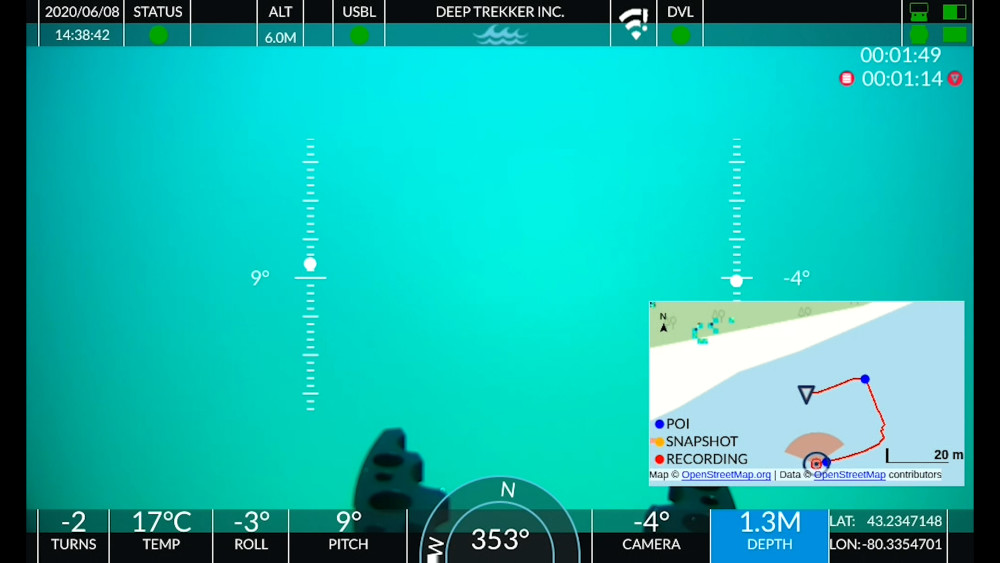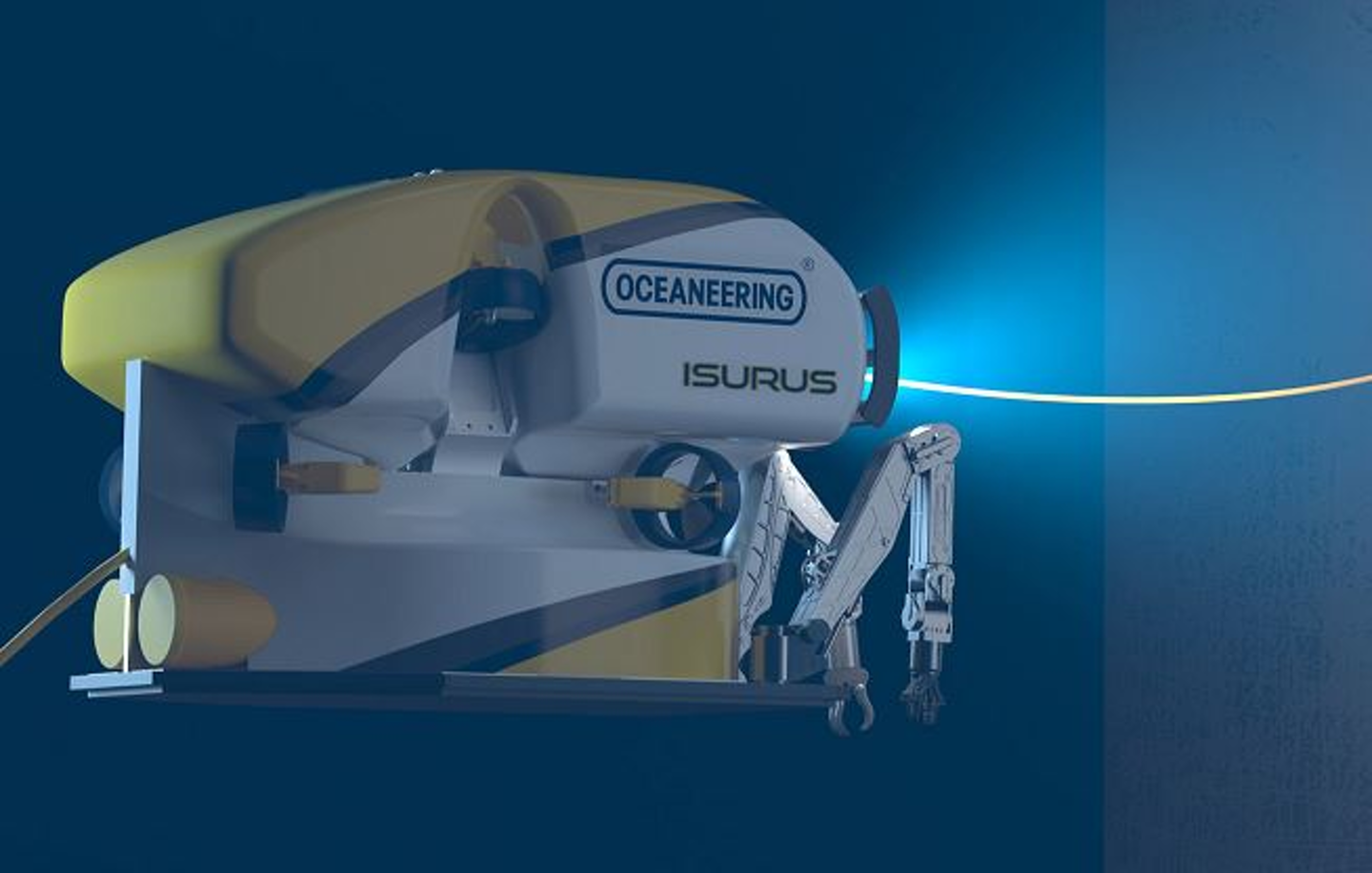Home › Forums › General › General Board › Vegetable Oil in ROV’s
- This topic has 15 replies, 12 voices, and was last updated 14 years, 9 months ago by
Alfred Brown.
-
AuthorPosts
-
August 6, 2009 at 3:51 am #2827
Jason
ParticipantHi All
I was just wondering if anyone had worked on ROV systems that had utilized vegetable oil instead of hydro carbon based oils. Does it work? We are living in a continually polluted world and working in the worst offender so any little we can do can only be of benefit. I know we dont usually empty the contents of the comps into the blue stuff but as "Coles" say every little helps (or was that tesco’s). If you have then drop me a PM or reply to this so I can try to get the ball moving where I work.
Cheers all.
August 6, 2009 at 4:30 am #24352DJansen
ParticipantProlly result in a lot less dermititus and skin probs too.. And if you run short you only have to go see the camp boss.. 🙂
August 6, 2009 at 6:36 am #24353Rons_ROV_Links
ParticipantVegetable oil is different from mineral based oil in the way it behaves at different temperatures. With low temperatures as during the winter times on the North Sea the oil might become too thick. With high temperatures it might get too thin for hydraulics. It probably also expands (volume) with higher temperatures.
Using it in junction boxes should not give big problems, but make sure it can be used with high voltage.
I wouldn’t use it in the hydraulic system because it will probably damage the pump(s) and valves.We’ve been using environtment friendly oil from Houghton but stopped with because it probably was human friendly (cancer).
I think Panolin makes environtment friendly oil too.August 6, 2009 at 1:49 pm #24354Octane_nor
ParticipantPanolin has eco friendly oil.. we use it on some of our systems.
And remember, ALWAYS use gloves.. or u will end up like I did… better now, but skin is still very sensitve.tmpphpkqbk7z_685.jpg  August 6, 2009 at 5:26 pm #24355
August 6, 2009 at 5:26 pm #24355Savante
Participantholly sh1t – how long was the exposure??
August 6, 2009 at 5:48 pm #24356Octane_nor
ParticipantHmm dont know really… just a little here, and litte there.. and over the years i guess it adds up , and this is the result.
Ive always been aware that hyd oil is bad for your skin.. and if i got anything on me, i just wiped it of on my coveralls.But i guess thats just not good enough, and the oil will absorb into your skin… and when u do this too many times this happends.
I always used gloves when working with oil, but its very easy for the gloves to tear.
tip of the day = get hyd oil on you? wash it of with soap
August 7, 2009 at 9:17 am #24357Andy Shiers
ParticipantLooks like you used your right hand TOO much friend ! 😀
Try alternating with the left 😆August 7, 2009 at 9:39 am #24358Savante
Participantahhh, don’t they call that "the stranger"? ? 😆
August 7, 2009 at 11:16 am #24359iROV
ParticipantTry these next time you filter out the chips and pork chops,
 August 10, 2009 at 11:34 pm #24360
August 10, 2009 at 11:34 pm #24360liddelljohn
ParticipantOOOOOMMMM… the smell of CASTROL R ….luvelrly!!
September 5, 2009 at 4:42 am #24361Pete
ParticipantThere are plenty of different vegetable based oils out there its just a matter of them being pushed to the right people in the office. These oils as with any oil should be treated with due respect they all have different properties and all the properties of the vegetable oils have been changed. This can turn them from human friendly cooking oils into more sinister products. Sometimes better the devil you know.
I do however agree that vege based oils are the way to go.September 5, 2009 at 10:42 pm #24362SMURF
ParticipantThere were few trial and error period back in the early 80’s with vegetable and mineral based hydraulic oil on ROV’s and hybrid manned/unmanned vehicle but way too much problem vs. the plus side of eco-friendliness.
There might be a better product nowadays, maybe…..
There even was a system using seawater but soon as you open up closed loop seawater hydraulic system, you will start getting a build up of salt and mineral crystal buildup and have to flush it out before putting everything back together. Again, only to be replaced by petro based product.
In both situations, you cannot get the constant hp under different environment like you do in petro based products.
Hopefully in the near future there might be a replacement for petro products so those leaky ROV’s out there are not polluting the ocean as much. 8)September 6, 2009 at 11:27 am #24363Savante
Participantthere is a company keeps advertising on the Northsound radio (local aberdeen radio station – that’s aberdeen, scotland, uk, eu,theworld!) – product is called pelagic or something – anyone tried one of the oil types??
haven’t a clue on the viscosity, temp vs. viscosity, bulk electrical characteristics, but it might be something worth buying in and leaving in a jb for a test??
October 7, 2009 at 8:19 pm #24364Donald Faulds
ParticipantROVs and veggy oil, is popular with clients because it is good for the enviro etc. Problem is that the vegetable oils tend to break down faster at higher temperatures. Given that ROVs generally have a lot less oil onboard than conventional hydraulic systems this means the extreme conditions happen more often and the oil goes out of grade sooner.
The big issue with "enviro friendly" oils is that they are designed to break down in the enviro quickly. This means that if you get a little water in the ROV fluid then it will want to decompose. Tends to be a problem when the ROV is switched off on deck. In summary, good quality mineral oil is always best when you can use it.
__________________________I think one day we will be able to run the ROV systems on pure distilled water (JB fill as well) but there isn’t enough water hydraulic components to do it yet. Water hydraulics would certainly keep the seal-cuddlers happy.
October 8, 2009 at 12:12 am #24365Alfred Brown
ParticipantHow often does a significant leak or catastrophic failure occur and is the type oil really an issue?
-
AuthorPosts
- You must be logged in to reply to this topic.



